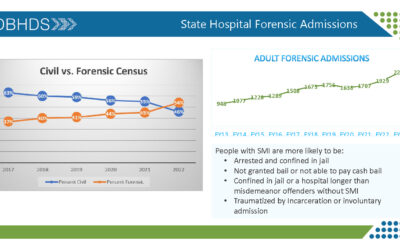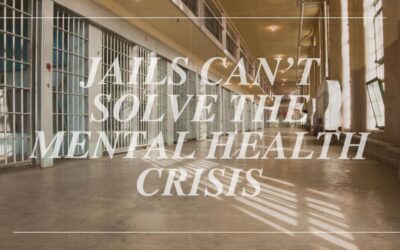**Trigger Warning: Racial Violence / Police Violence **
I would like to preface this post by mentioning that I am a white person who benefits from white privilege, and I am writing this as an ally to the Black community. I stand in solidarity with Black Lives Matter as innocent lives have been taken due to police brutality and racial violence. I cannot and will never be able to speak from experience, but have read about racial justice issues and learned from activist readings and movements sparked across the country’s history. In learning about the mental health implications of racism and violence, I want to commit to being actively anti-racist by amplifying marginalized voices and spreading awareness through this blog.
Furthermore, I would like to mention that racism and xenophobia impact people of all different racial and ethnic groups and America has a brutally long history of oppressing nonwhite people. In this post, however, I will be honing in on the oppression of the Black community in light of the past and recent tragedies of George Floyd, Breonna Taylor, Ahmaud Arbery, and so many more. I stand with the Black community in the United States as COVID-19 and other health conditions impact communities of color at disproportionate rates. Albeit showing allyship to racial and ethnic minority groups across the board is immensely important, in this post I will be focusing on the Black community, as it is the hardest hit by COVID-19 and by police violence.
Last year, I attended a health psychology lecture about the social determinants of health, and I was unfamiliar with this term. In the field of health psychology, scientists study “psychological, biobehavioral, social, and environmental factors in physical health and medical illness,” among diverse populations. Health psychology is such an important field because it discloses the vast socioeconomic inequities that exist in the health care system as well as within housing, employment, and educational systems. Social determinants of health are defined by the World Health Organization as “the conditions in which people are born, grow, live, work and age. They include factors like socioeconomic status, education, neighborhood and physical environment, employment, and social support networks, as well as access to health care.” Thus, these factors predict individuals’ and groups’ life expectancies, health conditions, functional limitations, child mortality rates, and much more.
Why is this terminology important? I bring up these terms because they can better help us understand what is happening in the U.S. right now with COVID-19 as well as the heinous acts of racism by police officers and white citizens. The virus does not discriminate by racial identity; society inflicts this discrimination. There are no genetic or biological differences making Black individuals more at-risk for catching COVID-19–it is the racial disparities that exist in this country putting Black communities at risk.
As the pandemic continues, we see that Black individuals are facing disproportionate death rates from the virus. Mortality rates from the virus are 3.57 times higher for Black Americans than for their white counterparts, as released by a recent Yale University study. In Virginia, for example, the death rate per 100,000 people is 15.5 for Black people, compared to 13 Latinx people and 11.9 white people. This is not a coincidence or due to biological differences.
As posed through the health psychology lens, there are many reasons for this vast inequity in the health care system for Black and Brown Americans, with a few being:
- Social determinants of health
- Higher risk of co-morbidities of health conditions including heart disease, diabetes, asthma, etc. → more adverse COVID-19 symptoms and dangerous reactions to it
- Economic and social conditions
- Less access to affordable health insurance → reduces the ability to access treatment
- Neighborhoods are less likely to have health clinics, well-funded hospitals, and emergency rooms → reduce the ability to access treatment
- Racial discrimination
- Doctors and nurses may exhibit implicit biases against POC → hinders the access to COVID-19 testing and believability about symptoms
This disheartening reality that socially and economically disadvantaged individuals are facing the brunt of COVID-19 is not made any better by the ongoing acts of police violence. Racism is a public health issue just as much as the global pandemic is– as the innocent killings of POC continue despite peaceful efforts from Colin Kaepernick, Black Lives Matter leaders, and activists around the world. As a white person, I cannot ever relate to the fear and sadness that the Black community feels right now upon the murder of George Floyd and so many others, nor what it is like to be actively discriminated against for the color of my skin. However, I want to emphasize that police violence against the Black community is a leading cause of death that cannot be taken lightly. Roughly 1 in every 1,000 Black men is killed by police. These violent encounters have profound impacts on communities of color, neighborhoods, schools, mental health, and, evidently, life expectancies.
During this tragic time of COVID-19 and overt acts of racism, it is no surprise that mental health is of utmost concern right now. As I have centered this blog around mental health during my internship with Mental Health America of Virginia, I want to mention the deep implications of race and ethnicity on mental health.
As issued by the President and CEO of Mental Health America’s National platform, Paul Gionfriddo, the normalization of bigotry and institutional racism impacts people’s mental health. Through the social determinants of health that I described above as well as living in fear of violence, it is no surprise that marginalized communities live with collective and individual traumas. As Gionfriddo describes, in addition to the overt acts of white supremacy, POC experience daily traumas such as racial profiling, school curricula that ignore the histories of communities of color, mass incarceration of Black Americans, housing and financial discrimination at banks and real estate agencies, and people who purposely neglect Black neighborhoods. Additional factors such as socioeconomic status are linked to mental health; when 20.8% of African Americans (compared to 8.1% of white people) are living in poverty, there is no choice but to see those factors as inextricably linked.
When acts of violence such as the murder of George Floyd are normalized AND when subtle acts of racism are ignored, Black people’s mental healths are harmed. Due to a combination of these non-exhaustive factors, I was saddened–but not surprised–to find that Adult Black Americans are 20 percent more likely to report serious psychological distress than adult white Americans. Furthermore, because Black people are more likely to experience a traumatic event like police violence, or losing a loved one to violence, they are more likely to be diagnosed with post-traumatic stress disorder. However, Black individuals have less access to mental health services and support for these conditions.
These graphics below help paint a comprehensive picture of racial and ethnic mental health disparities, which I encourage you to share with fellow allies and friends.
As I described above, I stand in solidarity with the Black community right now and always, and I will continue working to be an anti-racist ally. If you are a non-Black ally, please check in on your Black brothers and sisters, and consider donating, signing petitions, and advocating alongside the lives of marginalized people. I hope allies are in this for the long-run.
For Black folks seeking support and resources during this horrific time, I have compiled a comprehensive list of services, hotlines, and information below. As I mentioned above, systemic and institutionalized racism and discrimination can have psychological and physiological impacts on people of color. During these times of increased isolation due to COVID-19 and additional stressors, I have listed support resources below.
For white allies seeking tools to become an anti-racist activist and standing up against injustice, I recommend this list from Medium.com with 75 things white people can do for racial justice. Please feel free to share these resources to help stand up against racial violence against the Black community and/or to become a better ally. Education is power, and there are powerful actions that non-Black folks can take to stand up against police brutality and other forms of racism.
Hotlines and Direct Support Mental Health Resources for POC:
Black Emotional and Mental Health (BEAM) Collective:
- Dedicated to the healing, wellness, and liberation of Black and marginalized communities, with a Black Virtual Therapist Directory tool here
Community Healing Network:
- Emotional Emancipation Circles (EECs) are evidence-informed, psychologically sound, culturally grounded, and community-defined self-help support groups designed to help heal the trauma caused by anti-Black racism
- Sign up to stay in touch here
African American Therapists in Virginia:
- PsychologyToday has compiled a list of African American therapists and social workers in Virginia along with their contact information here
Men To Heal:
- An initiative that encourages men to pay more attention to their overall wellness, mental and physical health, to communicate effectively and increase their knowledge of self, especially African American men who face additional stigma
- The founder, James Harris, hosts quarterly sessions within the local community in Virginia or virtually in other states through The Healing Hub
VictimConnect Hotline: confidential, free, Monday – Friday from 8:30 am – 7:30 pm ET
- Call 1- 855-4-VICTIM or live chat here for information or assistance in locating services that can help you or a loved one after experiencing a hate crime
Virginia Attorney General’s Office, Mark R. Herring:
- If you need assistance, please contact human_rights@oag.state.va.us and 1-855-NOH8VA1(1-855-664-8821).
- NO HATE VA has resources for victims of hate crimes, housing and employment discrimination, harassment and intimidation, and physical injuries in Virginia
Crisis Text Line: 24/7, confidential, and free
- Free texting service that can be accessed by texting HOME to 741741 for free, 24/7 crisis counseling
Mental Health America:
- Free online screening tools for mental health conditions here
- General resource list for COVID-19 and mental health here
- The Mental Health America of Virginia Warm Line is available at 1-866-400-MHAV (6428) for mental health resources and referrals in Virginia
Therepeasy:
- Help get matched to an online mental health provider here
- Totally free, accessible, and instant matching with a therapist
American Psychological Association Help Center:
- List of national and statewide hotlines for support here
- Search tool to find a psychologist near you for longer-term help here
National Suicide Prevention Lifeline: 24/7, confidential, and free
- Call 1-800-273-8255 for distress, prevention and crisis resources for you or your loved ones, and best practices for professionals or online chat here
Mental Health and Self-Care Resources for POC:
- Black Girls Smile, with a comprehensive resources page with hotline phone numbers, African American focused mental health organizations, links to find a mental health professional, and more
- Therapy for Black Girls, notes from Dr. Joy’s “Racism and Mental Health” Podcast
- The Siwe Project, a global non-profit promoting mental health awareness throughout the global black community
- “Family-Care, Community-Care, and Self-Care Tool Kit: Healing in the Face of Cultural Trauma”, developed by and for people of African ancestry to comfort and inspire the Black community in these difficult times
- Mental Health America National, information and resources on minority mental health
- National Alliance on Mental Illness (NAMI) Sharing Hope Program, a presentation that can help increase mental health awareness in African American communities
- Black Mental Health Matters, an Instagram page focused on mental health resources and inspiration from a Black creator, @gabriellemlee
- National Black Nurses Association, the professional voice for over 200,000 African American registered nurses, licensed vocational/practical nurses, nursing students, and retired nurses
- National Black Child Development Institute, an organization committed to the success and well-being of Black children
- Black Mental Health Alliance, an organization committed to educating the public on culturally competent approaches for Black mental health
Useful Articles, Links, and Resources for Allies:
- Anti-Racism Resources for White People, books, articles, podcasts, films, and organizations to engage in anti-racist work
- #blacklivesmatter Resource Sheet, petitions, contacts of elected officials, call and email scripts, donations, information for protests, and more
- Vera Institute of Justice, issues and projects around securing equal justice, ending mass incarceration, and strengthening families and communities
- Project LETS (Let’s Erase the Stigma), information on African American communities and mental health conditions
- How To Talk with Other Whites About Racism, Beth Berila, Ph.D., transcribed a webinar that offers strategies for White racial justice allies to talk with other Whites about racism
- The U.S. Department of Health and Human Services Office of Minority Health (OMH), dedicated to improving the health of racial and ethnic minority populations
- Black Lives Matter, with the mission to eradicate white supremacy and build local power to intervene in violence inflicted on Black communities
- “Say Her Name: Resisting Police Brutality Against Black Women”, dedicated to Black women who have lost their lives to police violence and to their families
- American Psychological Association Office of Ethnic Minority Affairs, seeks to increase scientific understanding of how psychology pertains to both race/ethnicity and culture, with resources and publications on race psychology
- Racism Review, a list of documentaries about race and racism that teachers and allies should watch
- “An Essential Reading Guide for Antiracism”, a compilation of books about race and racism that can help allies understand why people are protesting
- National Museum of African American History & Culture, resources on how to be an active anti-racist advocate
- Antiracism and America, a collaboration between The Guardian and American University’s Antiracist Research and Policy Center
Anna Marston, Intern
Mental Health America of Virginia



